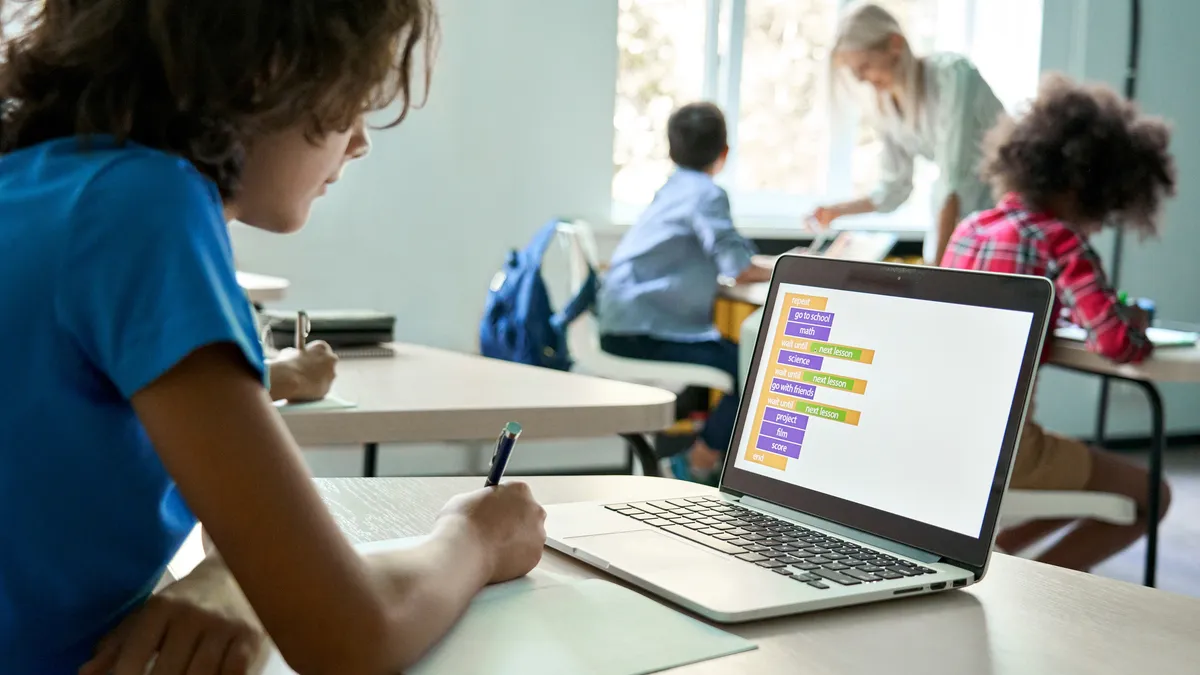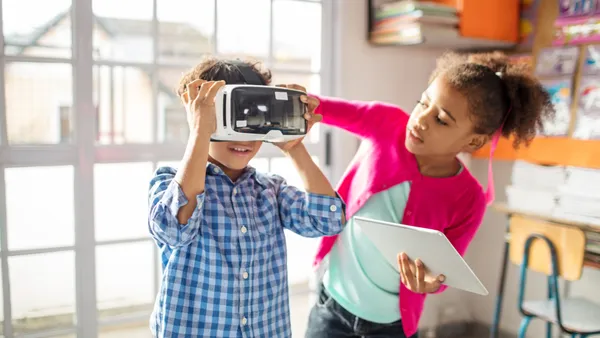Dive Brief:
- Surveillance technology on school-issued devices can have a “chilling effect” on students, changing the way they learn and communicate with their peers and teachers, the nonprofit Center for Democracy and Technology found in a recent study.
- Researchers who interviewed 20 parents of high schoolers found surveillance tools can take a mental toll on students, particularly when the technology flags inappropriate content for school disciplinary action. Students’ lack of privacy when using technology can further undermine their trust in their school and their teachers, according to the report.
- To address these concerns, parents surveyed suggested schools be more transparent with families about how the technology and the data it collects are being used. Some parents also said they want a more active role in decisions on deploying technology and for schools to view infractions more narrowly.
Dive Insight:
As schools increasingly rely on technology, it’s becoming increasingly popular to also monitor students’ online activity on their school-issued and personal devices.
A majority of secondary school teachers — 89% — report their schools use student activity monitoring tools, according to an August 2022 study by CDT. Schools often justify the use of these tools as needed to ferret out bullying, potential violence and inappropriate content.
The most recent CDT report, however, stresses that students can face severe social-emotional consequences from school technology surveillance — and that parents often view these consequences as unwarranted.
The study found, for instance, that some school staff, upon receiving monitoring alerts that students were off-task and exchanging messages, have shared students’ private messages in front of their classrooms. By releasing a student’s private information, the tool can wind up stigmatizing students, parents said.
One parent also said their child talks less in class and doesn’t often engage in online school work and activities since the student faced a reporting incident resulting from a surveillance tool. Such behavior can concern parents about the technology’s long-term impacts on student learning, CDT added.
Schools’ online surveillance is permitted through the Children’s Internet Protection Act, which requires schools to monitor students’ online activity and educate them about appropriate behavior on the internet. Along with other organizations, CDT has previously advocated for updates to the Children’s Internet Protection Act, specifically to clarify that the law “does not require broad, invasive, and constant surveillance of students’ lives online.”
While CDT’s research reflects concerns over the negative effects of online surveillance on students’ learning and well-being, privacy advocates have also sounded the alarm that students’ personal online data is at risk when private companies manage these services for schools.
For instance, a major class-action lawsuit filed last month by two California parents alleges that the online monitoring software company Securly illegally collected students’ private information without their consent and sold it to third-party vendors. Parents also claimed they did not know their children’s schools in San Diego County had installed Securly software on students' Chromebooks.













